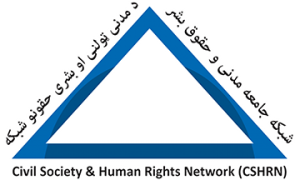Why is access to information essential for human rights?
Access to information means that citizens have the right to get information concerning civil, political, economic, social and cultural domains through the public administration. It is a principle of good governance that government information has to be available to the people. Relevant information includes for example policies, strategies, working programmes, financial and human resources available for the education or health sector, state expenditures, election procedures, and anti corruption measures. Exceptions to this principle have to be as few as possible; issues regarding national security or confidential data about individuals could be excluded.
Access to information is at the same time a right in itself as also a mechanism to claim rights. Human rights regulate the relationship between citizens and the state apparatus. Having access to information creates informed citizens, promotes popular participation and enables citizens to understand their role in building democracy. It also enables the population to confront the state with realistic expectations as its capacities and possibilities are known. The claims by the population push the state to become more transparent and accountable, and to become less influenced by corruption. It will therefore be in a better position to fulfill its role and to respect the rights of all the people living under its administration. That is why access to information is an active tool for strengthening human rights culture, endorsing democracy and encouraging the culture of prioritizing the rule of law in society.
What is the state of access to information today in Afghanistan?
Worldwide, the acknowledgement of the importance of access to information has greatly increased in recent years and today about 85 countries dispose of provisions in their national legislation to guaranty this right. In Afghanistan , access to information has a foundation within the new constitution. Article 52 grantees access to information as a civil law for Afghan citizens. Chapter two of the Afghan constitutions guarantees the civil rights and freedoms of Afghan citizens including access to means and information of state. However, no individual legislation has yet been adapted to provide the condition for the implementation of the mentioned articles.
What does CSHRN do to support access to information in Afghanistan?
According to the understanding of the Civil Society and Human Rights Network (CSHRN), it is the role of civil society to promote the accountability of the state towards its citizens. For this purpose, CSHRN has launched a project to push for the creation of an act regulating access to information in Afghanistan . CSHRN has prepared the ground for this in earlier years by sensitizing the Afghan public as well as the state to the importance of access to information through workshops on access to information in 2005 in Kabul and 2007 in Bamyan.
In 2009, CSHRN has identified three major steps in order to follow up on this preparatory work and to work for the inclusion of an access to information act into the national legislation. Concrete work within these three fields has already started. The steps identified are the following ones:
• Developing the understanding about access to information within civil society:
The understanding has been further strengthened this year through brainstorming, discussions and dialogues during an analytical symposium in Mazar-e-Sharif on May 1 st 2009 and through ongoing seminars, programs in radio and television and articles in print media.
• A working group develops a first draft of an access to information act with the support of DIHR: Scholars in the fields of media, national and international legislation, religion, and democracy have been selected in August 2009 to form a working group in Balkh province of Afghanistan. The working Group is composed of Mr. Said Mohammad Islami, a scholar in the field of Islam, Mr. Rahim Ibrahimi, journalist, Mr. Taqhi Wahedi, representative of Afghanistan Independent Commission of Human Rights, and Mr. Khalil Zaki, professor of law in Balkh university.
The working group studies Afghan and international legislations as well as international lessons learned related to access to information and also ensures that the aspects raised in the analytical symposium from May 09 will be used. The Danish Institute for Human Rights (DIHR) as a partner of CSHRN provides international studies and technical assistance to the Afghan colleagues to enable them to benefit from international experiences and expertise.
A first draft is expected to be ready in the first half of 2010. It will be discussed through a sustainable dialogue with the Afghan people through media debates and dialogues with civil society organizations in Northern provinces of Afghanistan and in Kabul . The CSHRN Coordination Office in the North region facilitates the consultation. Comments and proposals will be discussed and included into the draft paper on access to information.
• Lobbying for the discussion of the draft law in the parliament and its inclusion into the national legislation:
Civil society, national human rights institutions, media, journalist working group, etc. will jointly lobby to promote the draft law and to ensure it treatment within the parliament.
CSHRN will regularly report about the progress made in relation to access to information.
